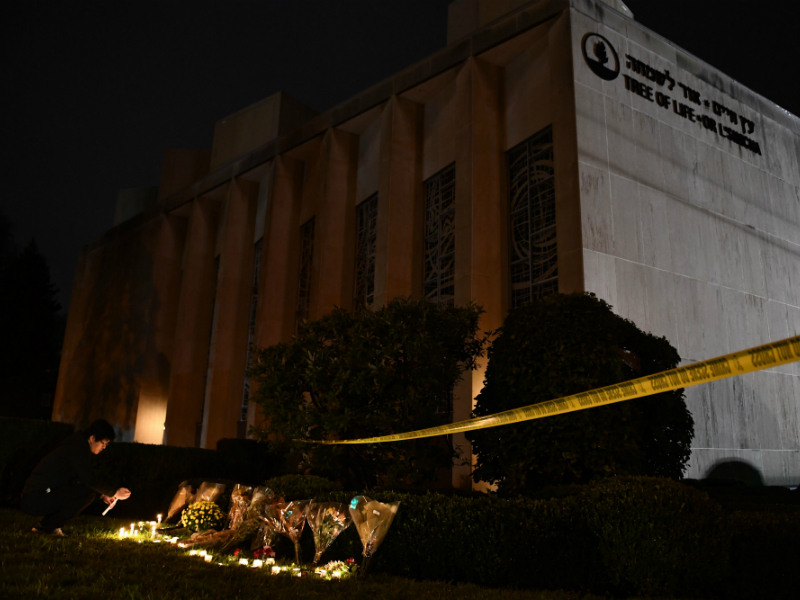Twenty-five years ago, I lost my first husband in a workplace shooting that took three other lives and forever changed many others. When I first started regularly visiting Israel for my work with the Centre for Israel and Jewish Affairs (CIJA), I was immediately aware that in Israel, at least, I was not alone in my experience. There, nearly everyone had lost a loved one to senseless violence. I felt a strange but profound kinship, built on the common knowledge that life is fragile, the human spirit is resilient, and our enemies are closer than we know.
On Oct. 27, the Jewish community of North America and our many friends and allies joined the sad but resolute circle of those who see the enemies at our doors.
In nearly every city and town in the United States and Canada, Jews and those who support them met to commemorate the 11 congregants who were massacred at Tree of Life Synagogue in Pittsburgh, PA. Prayers were chanted, politicians pledged support and denounced hate, other faith leaders stood in solidarity, and local law enforcement redoubled their presence in our neighbourhoods, near our schools and houses of worship.
It helps. Of course it helps.
For the 11 families in Pittsburgh who now enter the Jewish ritual of progressive mourning – the first week; the first month; the first year – the challenge is still very much before them. The challenge of comforting grandchildren too young to fully understand the meaning of death. The challenge of rebuilding a sense of safety in a world that has become so catastrophically and manifestly unsafe. The challenge of somehow finding a way to redeem their horrific loss by leading lives of purpose and meaning.
In the first week, they will sit and share memories with the hundreds of people who will come to offer comfort. Those stories will help keep their departed loved ones close as they navigate the painful transition to the reality of their absence. In the weeks and months that follow there will be letters from well-wishers whom they have never met; warm embraces from near-strangers as they begin to return to daily life; the shock of finding that they can begin to think of their loved one and smile. There will be days that feel almost normal, cruelly punctuated by flash-floods of overwhelming grief.
To the tens of thousands of people who are joining together in solidarity, the psychic energy of your sympathy and support will do more than you can possibly imagine to help the bereaved families. They may not know you, but I know from experience that they can feel your caring and concern.
READ: ONTARIANS MOURN THE VICTIMS OF THE PITTSBURGH SHOOTING
But just as their challenge must eventually be to redeem the hate-filled violence that shattered their families and their sense of safety, so too must we who stand in solidarity with them seek redemption. They, and we, have been visited by evil. And the only answer to the evil of anti-semitism is to name it, to confront it, to push it back under the rocks where it might lie dormant, and to drown its toxic aftereffects with good.
CIJA has long endorsed a series of measures that can produce meaningful results.
We can start by insisting that our elected officials shrink the public space in which hateful rhetoric can be casually shared. We need a national strategy on online hate that will engage policy makers, social media companies, and impacted groups.
We can start by demanding a recognition that, beyond security cameras and door locks, providing security for targeted minorities takes trained personnel. We now know that many lives in Pittsburgh were saved because congregants had recently had specific training and knew how to shelter in place or use alternate doors to exit the building. Governments should, as a matter of priority, find financial resources to support that training.
We can start by asking our universities and municipal, provincial, and federal governments to adopt the International Holocaust Remembrance Alliance (IHRA) definition of anti-semitism, ensuring that well-framed discussions can take place to better understand the lethal hatred that has taken millions of lives, including the 11 lost in Pittsburgh.
This week, we offer our support to the mourners. We hold them in our hearts and pray they will be comforted and consoled.
Next week, we act.
